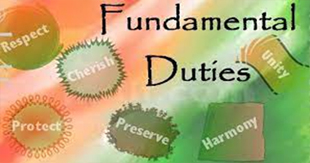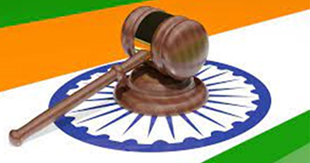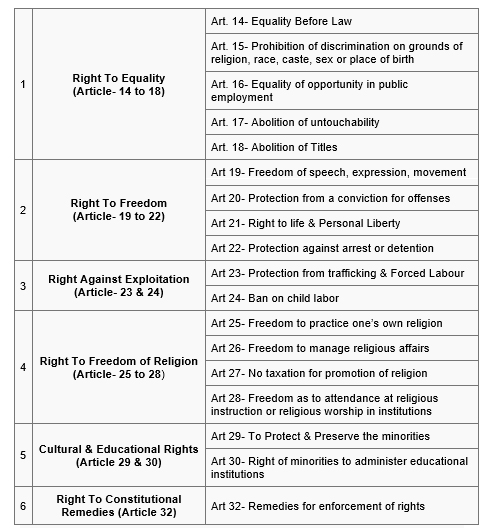 18 LAWS AND RIGHTS EVERY INDIAN CITIZEN MUST KNOW
18 LAWS AND RIGHTS EVERY INDIAN CITIZEN MUST KNOW

• Motor Vehicle Act 1988, section -185, 202:-
At the time of driving if your 100ml. blood contains more than 30mg. of alcohol then the police can arrest you without a warrant.
• Criminal Procedure Code, Section 46:-
No woman cannot be arrested before 6 A.M. and after 6 P.M
• Indian Penal Code, 166 A:-
A Police officer can’t refuse to lodge an FIR if he/she does so they could be jailed for up to 6 months to 1 year.
• Indian Sarais Act, 1887:-
Even any 5-star hotel can’t prohibit you from drinking potable water and using its washrooms.
• Motor Vehicle Act, 1988:-
As per Section 129 of the Indian Motor Vehicle Act, wearing the helmet is a must for two-wheeler riders. Section 128 of this Motor Vehicle Act limits the maximum two riders on the bikes. This law also says that if the traffic police officer snatches the key from the car or motorcycle, it is illegal. You have the full right to launch a Legal proceeding against the officer.
• Domestic Violence Act, 2005:-
If a young boy and a girl want to live together in a “live-in relationship”, they can do so because it is not illegal. Even the newborn from this relationship is also a legal son or daughter and this newborn have the full right in the assets of his/her father.
• Police Act, 1861:-
A police officer is always on duty whether he/she wearing a uniform or not. If a person makes a complaint to the officer, he/she could not say that he can’t help the victim because he/ she is not on duty.
• Maternity Benefit Act, 1961:-
No company can fire a pregnant woman. It may be punishable by a maximum of 3 years of imprisonment.If the company (Government or private) has more than 10 employees then the pregnant women employee is eligible to get 84 days paid maternity leave.
• Income Tax Act, 1961:-
In the case of tax violations, the tax collection officer has the power to arrest you but before arresting you, he/she will have to send a notice to you. Only Tax Commissioner decides how long you will stay in the custody.
• Hindu Marriage Act, Section -13:
As per the Hindu Marriage Act, 1955 (any husband or wife) may apply for divorce in the court on the basis of Adultery (physical relationship outside of marriage), physical and mental abuse, impotency, to leave home without information, to change Hindu religion and adopt other religion, insanity, incurable disease and no information about husband or wife for seven-year.
• Code of Criminal Procedure, 1973:-
Only women police constable can arrest women. Male constable
doesn’t have the right to arrest women. Women have the right to
deny going to police stations after the 6 P.M. and before the 6 A.M.
In the case of a serious crime only after receipt of the written order from the magistrate, a male policeman can arrest a woman.
• As per the Citizen Charter (Indian Oil Corporation website):-
There are very few people who know that if their gas cylinder blasts during the cooking of food then the gas agency is liable to pay Rs. 50 lakh to the victim as compensation.To claim this compensation consumers need to lodge an FIR to the nearest police station and submit it to the concerned gas agency.
• Automotive (Amendment) Bill, 2016,:-
If you are fined for a crime (like riding without a helmet or any other
reason) then you will not be fined for the same reason in the same day.
• Maximum Retail Price Act, 2014:-
Any Shop keeper can’t charge more than the printed price of any commodity but a consumer has the right to bargain for less than the printed price of a commodity.
• Limitation Act, 1963:-
If your office does not pay you then you have the power to file an FIR against it within 3 years. But if you report after 3 years, you will not get anything for the due.
• Section 294 of the Indian Penal Code:-
If you are found involved in “obscene activity" at a public place, you can be imprisoned for 3 months. But in the absence of an exact definition of obscene activity police have always misused this act.
• Hindu Adoption and Maintenance Act, 1956:-
If somebody belongs to the Hindu religion and has a son or grandson then he can’t adopt a second child.There must be a gap of at least 21years between you (the adopter) and your adopted son.
• Delhi Rent Control Act, 1958, Section 14:-
If you are living in Delhi then your landlord does not have the right to forcefully vacate your house without giving prior notice to you.
 OUR FUNDAMENTAL DUTIES
OUR FUNDAMENTAL DUTIES

• To oblige with the Indian Constitution and respect the National Anthem and Flag
• To cherish and follow the noble ideas that inspired the national struggle for freedom
• To protect the integrity, sovereignty, and unity of India
• To defend the country and perform national services if and when the country requires
• To promote the spirit of harmony and brotherhood amongst all the people of India and renounce any practices that are derogatory to women
• To cherish and preserve the rich national heritage of our composite culture
• To protect and improve the natural environment including lakes, wildlife, rivers, forests, etc.
• To develop scientific temper, humanism, and spirit of inquiry
• To safeguard all public property
• To strive towards excellence in all genres of individual and collective activities
• To provide opportunities for education to children between 6-14 years of age, and duty as parents to ensure that such opportunities are being awarded to their child.
The 11 fundamental duties look at the crisis in Indian society and become a tool for straightening it out. They serve as a source of protection for the liberty of the people.
OUR FUNDAMENTAL RIGHTS

 1.Right To Equality (Article- 14 to 18)
1.Right To Equality (Article- 14 to 18)
• Equality before the law and equal protection of laws (Article 14).
• Prohibition of discrimination on grounds of religion, race, caste, sex, or place of birth (Article 15).
• Equality of opportunity in matters of public employment (Article 16).
• Abolition of untouchability and prohibition of its practice (Article 17).
• Abolition of titles except military and academic (Article 18).
The exception to the Right to equality allowed by the Indian Constitution is: The President or the Governor of a state is not answerable to any court.
2. Right To Freedom (Article- 19 to 22)
Protection of six rights regarding freedom of (Article 19):
(i) speech and expression
(ii) assemble peacefully and without arms,
(iii) Form associations or unions
(iv) Move freely throughout the territory of India,
(v) Reside of settle in any part of the country,
(vi) Practise any profession or to carry any trade or business
• Protection in respect of conviction for offenses (Article 20)
• Protection of life and personal liberty (Article 21): No person shall be deprived of his life or personal liberty
• Right to elementary education (Article 21A): It makes the right of education for children of the age of 6 to 14 years a fundamental right.
• Protection against arrest and detention in certain cases (Article 22): No person who is arrested shall be detained in custody without being informed of the grounds for such arrest.
3. Right Against Exploitation (Article- 23 & 24)
• Prohibition of traffic in human beings and forced labor. (Article 23)
Traffic in human beings and the beggar and other similar forms of forced labor are prohibited.
• Prohibition of employment of children in factories, etc. (Article 24)
No child below the age of 14 years can be employed to work in any factory or mine or engaged in any other hazardous employment.
4.
Right To Freedom of Religion (Article- 25 to 28)
• Freedom of conscience and free profession, practice and propagation of religion (Article 25)
• Freedom to manage religious affairs (Article 26)
• Freedom from payment of taxes for promotion of any religion (Article 27)- The state can not compel any citizen to pay any taxes for the promotion or maintenance of any particular religion or religious institutions.
• Freedom from attending religious instruction or worship in certain educational institutions (Article 28)
5.
Cultural & Educational Rights (Article 29 & 30)
• Protection of language, script and culture of minorities (Article 29)
Where a religious community is in the minority, the constitution enables it to preserve its culture and religious interests.
• Right of minorities to establish and administer educational institutions (Article 30)- Such communities have the right to establish educational institutions of its choice and the state shall not discriminate against such an educational institution maintained by a minority community.
6. Right To Constitutional Remedies (Article 32)
Right to constitutional remedies is termed as the “Soul of the constitution” by Dr. BR Ambedkar.
The Writs
For the enforcement of fundamental rights, the judiciary has been armed with the power to issue the writs. The Supreme court can issue an order or following writs for the enforcement of the fundamental rights against any person or Government within the territory of India:
(i) Habeas Corpus: It is issued to the official or a private person who has detained another person in his custody. The latter is produced before the court in order to let the court know on what grounds he has been confined.
(ii) Mandamus: It literally means Command. It commands the person to perform some public or legal duty that the person has refused to perform.
(iii) Prohibition: This writ is issued by a higher court to the lower court to not exceed its jurisdiction limit. It is issued during the pendency of the proceedings.
(iv) Certiorari: This writ is also issued against courts or tribunals to quash the order or decision of the court or tribunal. It can be issued only after the order has been made.
(v) Quo Warranto: It is a proceeding where the court enquires into the legality of the claim. In this, a higher court can remove a public official if he/she has acquired the post illegally.